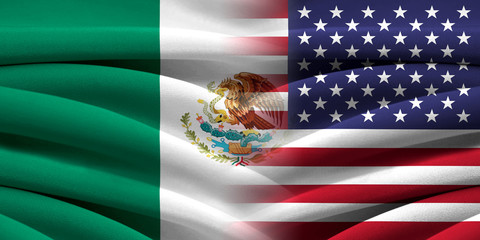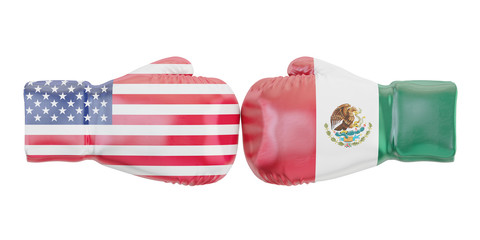The United States of America (USA) on March 8, 2018 increased, as of March 23, 2018, the tariff rates applicable to imports into that country of steel and aluminum products from around the world by 25% and 10% respectively .;
On April 30, 2018, the United States decided to establish a temporary exemption from the payment of the increase in import duties on steel and aluminum products originating in Canada, Mexico and the European Union until May 31, 2018; These tariffs are already applicable to imports of steel and aluminum products originating in Mexico as of June 1, 2018.
The measures taken by Mexico are equivalent to the measures implemented by the US, these measures will only be applied to definitive imports, including those carried out under the Sectorial Promotion Programs (PROSECs); As well as those carried out in the northern border region and strip, the measures consist of suspending preferential tariff treatment and increasing the rates of the general import tax on various merchandise originating solely from the United States regardless of the country of origin, which will be in force until the Federal Executive determines that the United States has stopped applying tariff rates to steel and aluminum products originating in Mexico.
In order to differentiate between the goods to which the measures to be imposed will be applicable from those that will not be affected, it is necessary to create a tariff section that allows distinguishing the sausages of pigs of the other species. The fraction is as follows:
|
CODE
|
DESCRIPTION
|
UNIT
|
TAX
|
|
IMP.
|
EXP.
|
|
1601.00.02
|
Of the swine species.
|
Kg
|
15
|
Ex.
|
Mexico can adjust the composition of the list of merchandise originating in the United States for which the general import tax rates will be increased.
On October 17, 2017, the Tariff of the General Import and Export Tax Law was modified in order to temporarily increase the import tariff of 97 tariff items that correspond to to iron and steel sector merchandise related to slab, sheet plate, roll plate, cold rolled sheet, hot rolled sheet and wire rod, with a tariff level similar to that used by other countries; With this increase, there has been an increase in imports from countries with which Mexico has a trade agreement and a reduction in imports from countries with which no type of trade agreement has been signed.
As the absence of conditions for healthy competition between the steel industries of different countries persists, and in addition to the unilateral measures imposed by the US, a substantial increase in exports from US supplier countries to our country, coupled with a drop in prices and a deviation in trade due to the increase in the global supply of steel that will cease to consume that country, the world's leading steel importer. Therefore, it is equally urgent and necessary to establish an increase in the general import tax for 186 tariff fractions of iron and steel products, of the families of slab, sheet plate, roll plate, cold-rolled sheet, hot-rolled laminated, wire rod , seamless pipes, welded pipes, coated sheet, rod and profiles.
In turn, various sectoral promotion programs are established, in order to incorporate, for the same time period, various tariff fractions to prevent the general import tax from impacting the chains productive and competitiveness is maintained in the most sensitive industrial sectors such as electrical, electronic, automotive and auto parts.
It will be necessary to specify the description of the tariff fractions included in subheading 7210.49 and chapter 73 of the Tariff of the Law of General Import and Export Taxes in order to avoid the interpretation that a good can be classified into two or more tariff items; Likewise, it is convenient to add explanatory notes of national application to Chapter 73, referring to tariff heading 73.04, in order that the customs authority can, in a more simple and expeditious way, carry out the customs clearance of goods of difficult classification, such as those relating to various steel manufactures.
The import tariffs of the tariff items applied to items 0203.12.01, 0203.19.99, 0203.22.01, 0203.29.99, 0406.10.01, 0406.20.01, 0406.90 .04 and 0406.90.99 will enter into force on July 5, 2018, meanwhile the applicable tariff to tariff items 0203.12.01, 0203.19.99, 0203.22.01, 0203.29.99, 0406.20.01 and 0406.90.04 will be 10% and for tariff items 0406.10.01 and 0406.90.99 it will be 15%.
The tariffs that Mexico applies to the US range between 7% and 25%.
Sector Promotion Programs are modified with an EX tariff, with the following tariff fractions: 26.01, 7208.27.01, 7209.16.01, 7209.17.01, 7211.29.02, 7225.30 .99, 7225.40.01, 7208.39.01, 7208.51.01, 7211.29.02, 7225.19.99.
The Ministries of Finance and Public Credit and of the Economy, within the scope of their respective powers, may issue the general provisions that are necessary for the correct and due application of this document. Decree.







